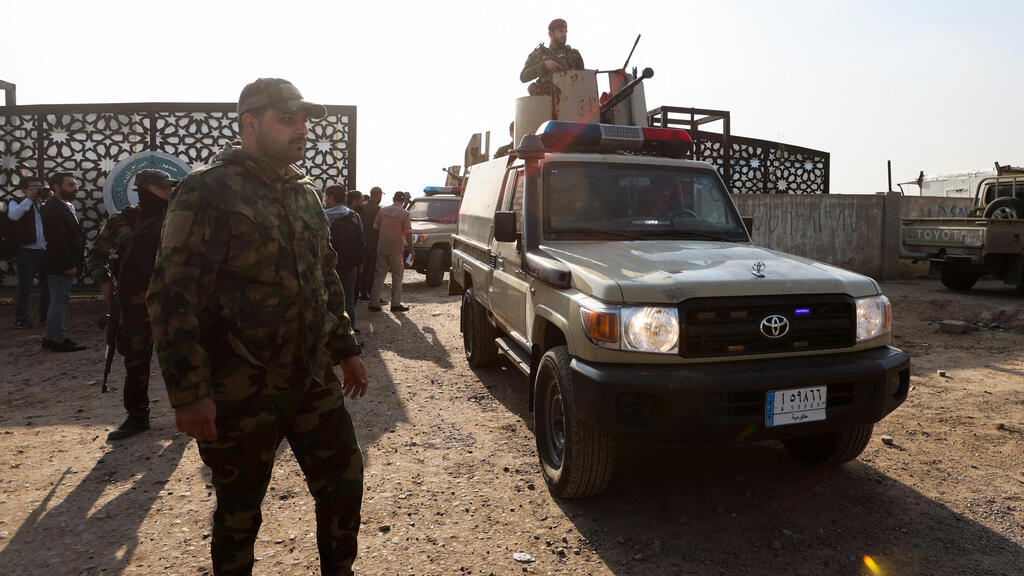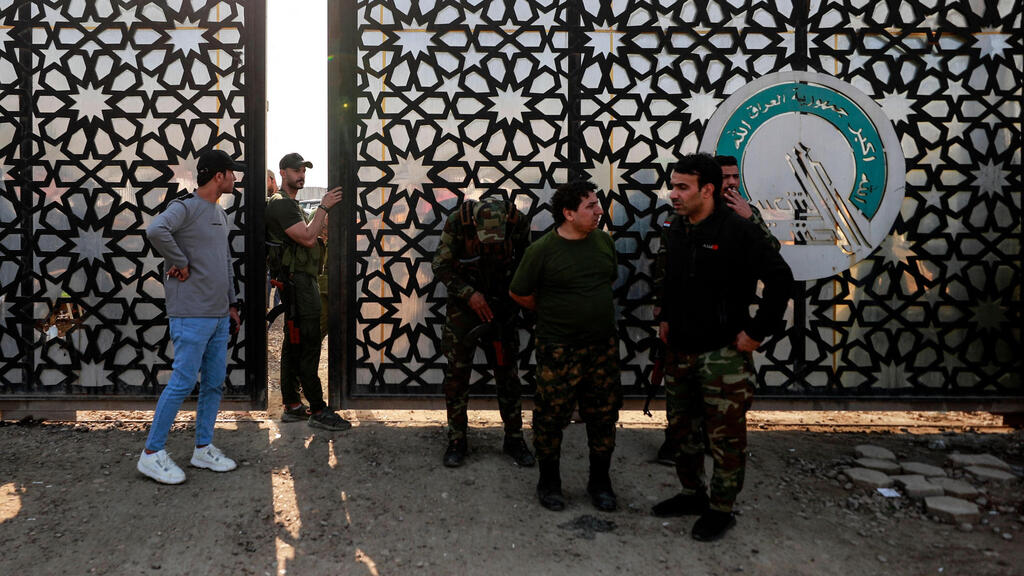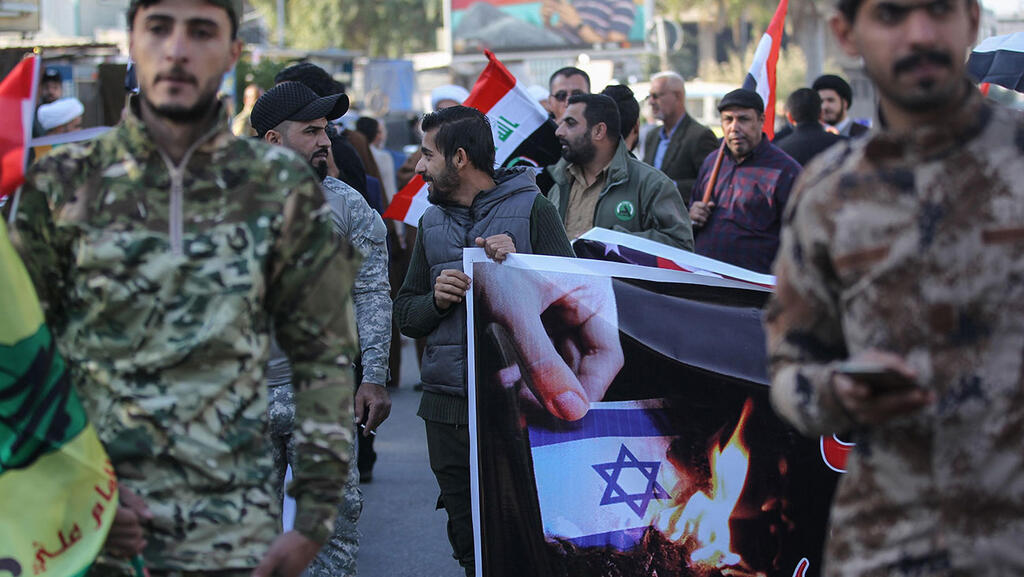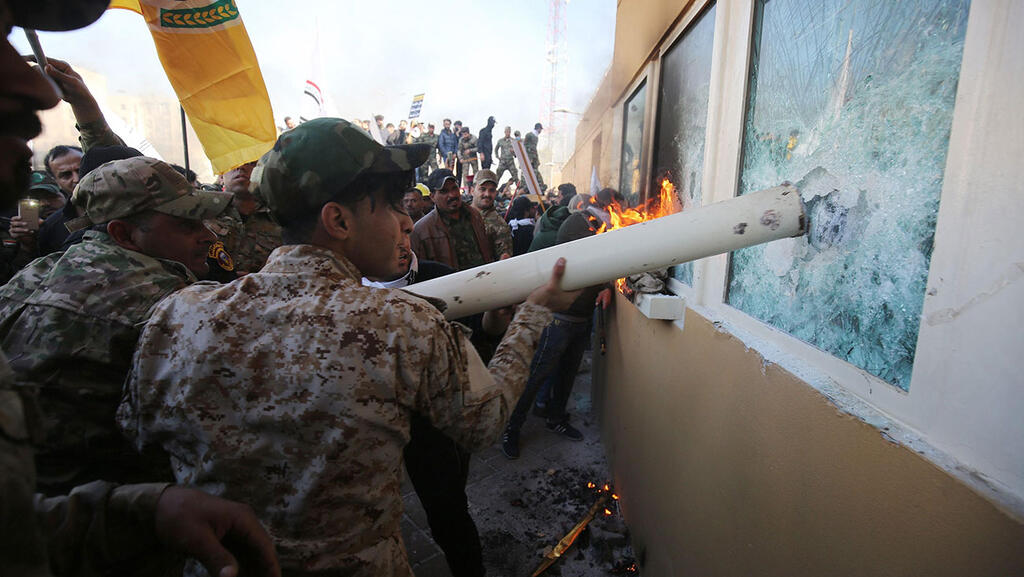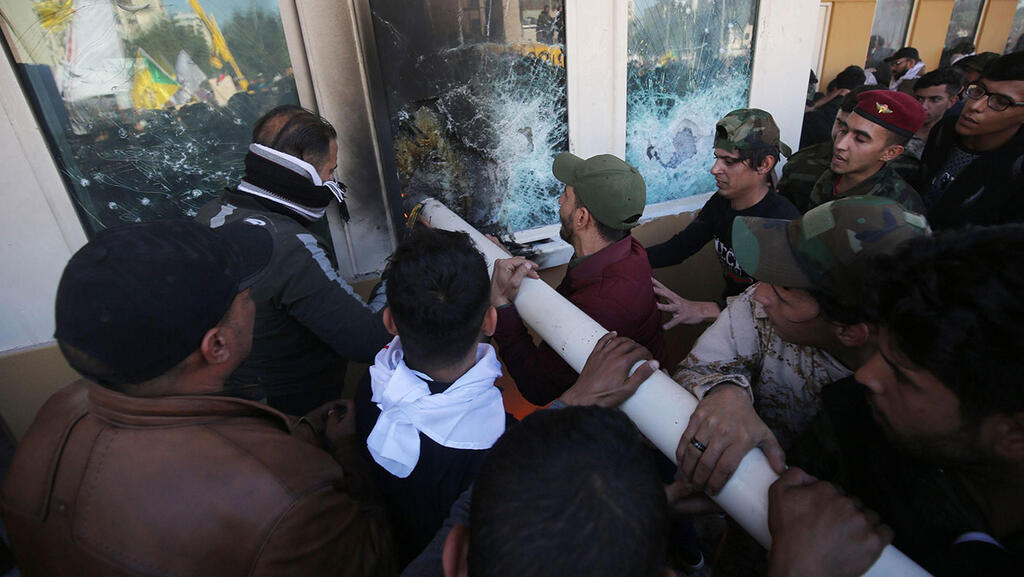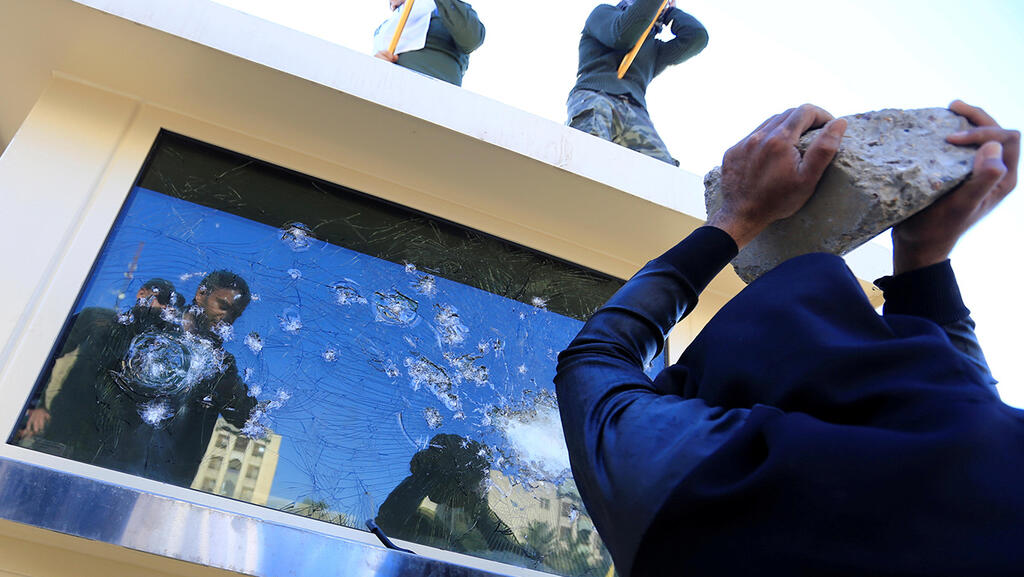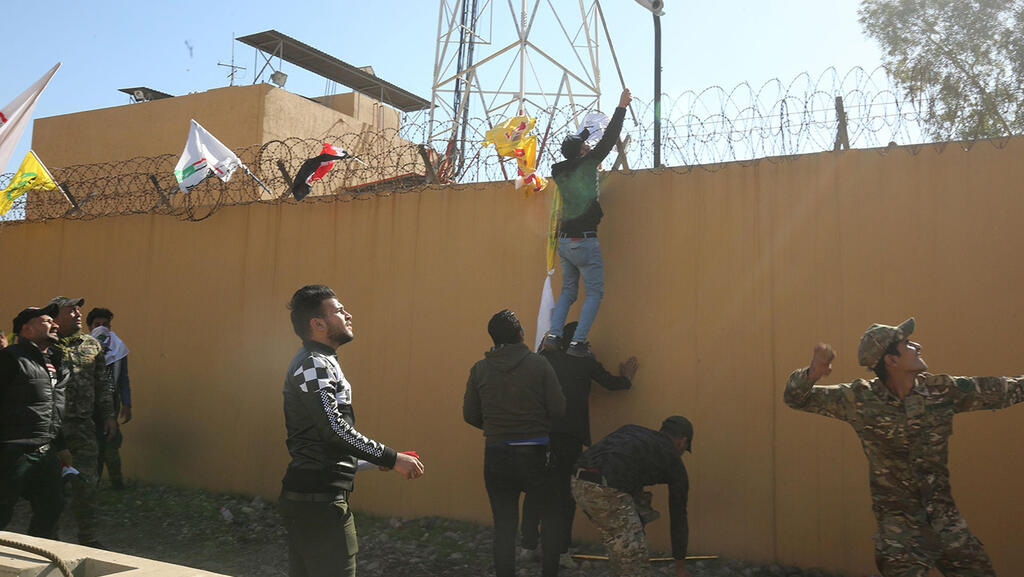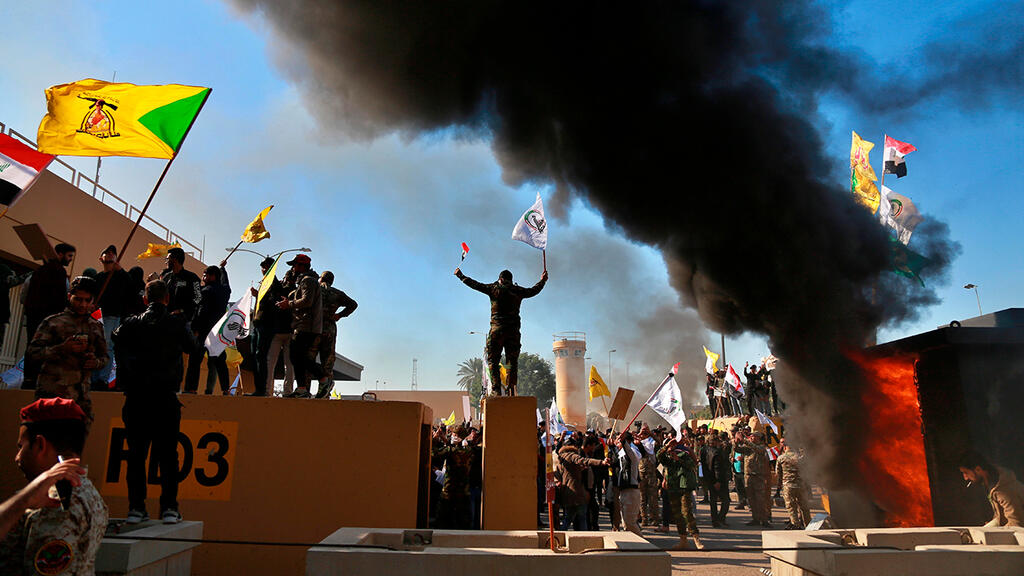Getting your Trinity Audio player ready...
Iraq’s military landscape has changed significantly in recent years, with Iran-backed militias shifting their focus from operations for the Iranian Revolutionary Guard to protecting economic interests, especially those of their leaders.
These militias are highly visible in Iraq, with members driving luxury SUVs, often with tinted windows and sirens, while carrying weapons. Yet, their role has evolved.
Many Iran-backed Shiite militias within the Popular Mobilization Forces (PMF), a predominantly Shiite paramilitary group formed to fight the Islamic State (IS) in Iraq, have been inactive for months. Some have not engaged in combat since early 2020, after Iranian military officer Qasem Soleimani was killed in Iraq by the U.S.
Hezbollah-trained militias like Iraq-based Kata’ib Hezbollah have conducted over 150 military operations since the start of the Israel-Hamas conflict. These include bombing U.S. camps in Iraq and Syria and launching drones and missiles at Israel.
Older, larger, and more experienced Iraqi militias have refrained from recent combat and did not respond militarily to the killings of Soleimani or other Iranian generals in Iraq and Syria. Instead, their leaders have pivoted to becoming billionaire businessmen, using their militias for personal gain.
It seems that these militias have abandoned Iran.
Having executed Iran’s agenda in Iraq and the region since 2003, these militias now own numerous commercial ventures in Iraq. Their leaders possess wealth estimated in the tens of billions of dollars, with many of their international businesses and real estate holdings, in countries such as Lebanon, the UAE, and the UK, held under false names to circumvent US sanctions.
These fortunes have been amassed in recent years through the corruption of militia leaders in government positions.
Numerous U.S. and international reports suggest that corrupt Shiite politicians have embezzled over $1 trillion from Iraq. The militias are linked to these political factions.
Militia leaders have fraudulently secured tens of millions of dollars in government funds meant for the PMF. They also engage in corrupt business deals and extort “tribute” payments from residents in areas under their control.
Hadi al-Amiri
The Badr Organization, under the leadership of Hadi al-Amiri, is the largest Iran-backed Shiite militia in Iraq, with more than 10,000 fighters, according to official statistics.
Founded in 1981, the Badr Organization became a dominant force in Iraq after the 2003 U.S. invasion. It participated in Iranian operations in Iraq before 2020 but has not been involved in recent Iranian military operations.
Al-Amiri is one of the most seasoned fighters trained by Iran and is considered the most militarily experienced among militia leaders. He has held multiple official positions in Iraq.
The Badr Organization now secures al-Amiri’s interests across central and southern Iraqi governorates and in the capital, Baghdad. He is a partner in several Iraqi banks and wields influence in commercial areas, where shop owners are compelled to pay “tribute” in exchange for security. Al-Amiri also owns several large shopping malls in Baghdad.
Al-Amiri’s wealth is rumored to exceed $10 billion, although this figure remains unverified.
During the war against IS in Iraq, al-Amiri donned military uniforms and led hundreds of operations against U.S. camps and IS forces. Recently, he has recast himself as a politician, calling for the withdrawal of remaining U.S. forces through negotiations. He has also refrained from pledging military support for Iran in its response during the ongoing Gaza conflict.
Iraqi businessman Nour Zuhair is on trial for the “theft of the century,” a notorious embezzlement of over $11 billion in tax funds. Zuhair claims he was merely the frontman for the operation, alleging that al-Amiri and others orchestrated it, with al-Amiri receiving the largest share.
Qais Khazali
Qais Khazali, leader of the Iran-backed Shiite militia Asa’ib Ahl al-Haq, has also seen his military activity decline. The group has not been involved in Iranian military operations since the Gaza war began.
Asa’ib Ahl al-Haq split from the Mahdi Army militia, led by Shiite cleric Muqtada al-Sadr, in 2006. The group has targeted Sunni Iraqis and several U.S. military camps in Iraq.
Kata’ib Hezbollah publicly accused Asa’ib Ahl al-Haq of “cowardice” for abstaining from military operations since the Gaza war began. In a media statement, Kata’ib Hezbollah claimed Asa’ib Ahl al-Haq had violated Islamic and resistance demands.
Asa’ib Ahl al-Haq operates several large shopping malls, as well as industrial, agricultural, and contracting businesses.
Muqtada al-Sadr
In 2022, Iraqi Shiite leader Muqtada al-Sadr announced the dissolution of his militia. However, the group, now called Saraya al-Salam, remains active in Iraq, safeguarding its territory in Baghdad and its economic ventures. It has not engaged in military operations alongside Iranian forces since Soleimani’s assassination in early 2020.
Formerly known as the Mahdi Army, the group was dissolved but re-formed as Saraya al-Salam when the PMF was created to confront IS.
Saraya al-Salam oversees several major economic projects, including poultry and dairy farms, as well as shopping centers, shops, and commercial streets.
Independent estimates place al-Sadr’s wealth at over $5 billion in cash and $10 billion in real estate and other investments.
Ammar al-Hakim
Shiite cleric Ammar al-Hakim leads the National Wisdom Movement, a group with several militias that frequently change names. These militias have not taken part in Iranian operations for several years, with their last involvement being in the 2017 war against IS.
Although the National Wisdom Movement’s militias have many military experts, their current role is to safeguard al-Hakim’s interests in various Iraqi provinces. Al-Hakim owns all the bars and nightclubs in the Karrada district of Baghdad, manages projects in Erbil, and controls several oil wells that are exported outside Iraq through the Umm Qasr port in Basra. Al-Hakim also owns Fly Baghdad airline, which was sanctioned by the US in January 2024.
Unofficial estimates suggest that al-Hakim’s fortune is around $65 billion, though prominent Iraqi politician Mithal al-Alusi claims it could be as high as $150 billion.
Shibl al-Zaydi
Shibl al-Zaydi leads Kata’ib al-Imam Ali, a militia that has not taken part in Iranian military operations since Soleimani’s assassination. Al-Zaydi, a military figure closely connected to the Iranian Revolutionary Guard, was often seen alongside Soleimani on the front lines.
Founded in 2013, Kata’ib al-Imam Ali was the militia most closely tied to the Iranian Revolutionary Guard. It took part in the PMF’s fight against IS until 2018.
Unlike other militias, Kata’ib al-Imam Ali does not own large shopping centers or commercial enterprises. Instead, it focuses on drug cultivation, oil smuggling, and banking sector investments, partnering with numerous Iraqi and Lebanese banks.
Al-Zaydi’s wealth is estimated at $2 billion. He also owned iron smelting plants in Ukraine but lost access to them after the Russian invasion.
Investments
Prominent Iraqi businessman Adi Al-Karaghouli told The Media Line that militia leaders are now more focused on safeguarding their business interests than on international affairs.
Al-Karaghouli said his investment company works with second and third-tier militia leaders who are investing hundreds of millions of dollars, while top-tier leaders invest billions.
He also noted that when a commercial building he managed caught fire, several militias arrived within minutes to investigate.
“In general, everyone is happy,” Al-Karaghouli said. “These militias are no longer attacking civilians directly. They manage large investments that employ hundreds of thousands of Iraqis with generous salaries. They’ve become businessmen who own weapons.”
Retired Iraqi army general Hamed Mohammadi told The Media Line that it was no surprise the militia leaders abandoned Iran. “These militia fighters never fought for a principle. They’re not an army; they’re just mercenaries,” he said.
Mohammadi explained that Iran used to pay militia fighters just $400 a month. Now, “junior fighters earn thousands more by protecting the economic interests of senior leaders, which is far more lucrative.”
Mohammadi noted that Iran’s ability to respond to recent attacks from Israel and the US has been weakened by the withdrawal of several key militias.
“Esmail Qaani, who succeeded General Qasem Soleimani as commander of the Iranian Quds Force, lacks Soleimani’s strong personality and cannot command Iran’s traditional militia leaders as Soleimani did,” Mohammadi said. “Qaani has repeatedly tried to rally these militias to fight alongside the Quds Force and the Revolutionary Guards, but they have ignored him. Now, they avoid meeting with him altogether.”
Abdul Amir al-Saadi, a member of a pro-Iran political party in Iraq, told The Media Line that Iraq has chosen a sovereign path by not interfering in regional conflicts.
“The Iraqi prime minister has consistently stated that Iraq should not serve as a battleground for major powers, and the armed factions have come to understand this. Iraqis are tired of fighting for other nations,” he said. “We should focus solely on protecting Iraq.”
While acknowledging the continued threat posed by IS, al-Saadi said Iraq “should not fight for other countries at the risk of losing its provinces to IS again.”
Iraqi businessman Harith Al-Aboudi shared with The Media Line his experience as a shop owner in Baghdad’s Karrada district, where Ammar al-Hakim’s National Wisdom Movement holds control.
“Following the 2016 Karrada bombing, National Wisdom Movement militants took full control of the area and now protect it from further attacks,” Al-Aboudi said. “We pay them between 10% and 30% of our monthly profits.”
Al-Aboudi noted that all the bars and nightclubs in the area are affiliated with the National Wisdom Movement and protected by its militias. Al-Aboudi said that locals generally support the arrangement with the militias. “Paying that money to protect our lives and businesses isn’t a bad deal,” he said.
Khaled Al-Ani, an Iraqi researcher focused on armed groups, said the militias have divided Baghdad and the provinces, with each group claiming a share.
Al-Ani told The Media Line that the Trump Administration’s sanctions severely restricted the militias’ access to cash. “These senior leaders are now avoiding military operations, hoping the sanctions will be lifted and funds restored,” he said.
Offering a different perspective, Iraqi politician Mustafa al-Samarrai, who lives outside Iraq, argued that the militias are not defying Iran but are instead offering it a different service.
“The truth is that their mission has shifted to managing economic interests and funneling large sums of money to Iran,” he told The Media Line. “If they had really disobeyed Iranian orders and refused to fight alongside the Iranian Revolutionary Guard Corps or the Quds Force, Iran would have eliminated them immediately.”
He explained that Iran now relies on these groups for revenue following the U.S. Federal Reserve’s crackdown.
“U.S. sanctions on Iran have forced it to change the role of its traditional militias in Iraq,” he said. “Iran needs funds to support Hezbollah, the Houthis, and other armed groups in Syria, and Iraq’s militias are the ones financing them.”



